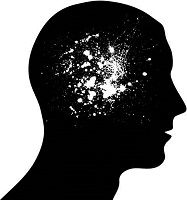Article
Study: Magnetics Help Traumatic Brain Injury Headaches
Author(s):
Drugs have not been shown effective in relieving the debilitating headaches that can follow mild traumatic brain injury (MTBI). Researchers report that transcranial magnetic stimulation appears to do better.

Drugs have not been shown effective in relieving the debilitating headaches that can follow mild traumatic brain injury (MTBI)
In a study presented at the American Society of Interventional Pain Physicians meeting in Orlando, FL April 11, Robert McLay, MD, PhD and colleagues at the University of California San Diego and the Veterans Administration San Diego Healthcare System in La Jolla, CA, looked at the effects of repetitive transcranial magnetic stimulation (rTMS).
The treatment involves using a basic electromagnetic coupling principle in which a rapid discharge of electric current is converted into dynamic magnetic flux allowing the induction of a localized current in the brain. The idea is to achieve neuromodulation. The treatment has been used for treating other types of headaches.
The researchers treated 6 men with MTBI headaches. To be included in the study, they had to have headaches lasting more than 48 hours. Measured on a pain scale, the average intensity of these headaches was 5.50 before treatment and 2.67 after receiving rTMS.
In addition, headache intensity was reduced by an average of 53.05%, and the average headache exacerbation frequency was reduced by 78.97% with 2 patients reporting no more severe headaches.
The authors concede that randomized trials are needed to confirm their results but say their findings are encouraging.
“MTBI headaches are often treatment-resistant, but in this case series patients were found to have improvements in severity, frequency and duration of their headaches after rTMS,” they wrote in the abstract.
The authors had no conflicts to disclose.




